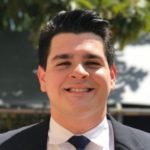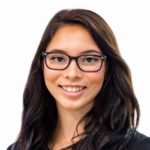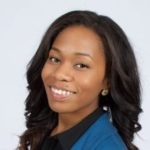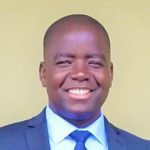It’s safe to say that no one could have predicted what 2020 had in store for us. A global pandemic, millions out of work, and profound uncertainty about how we will navigate this new normal.
But beyond that, America is now being called to reckon with its systems of racism and injustice. The senseless killings of Breonna Taylor, George Floyd, Ahmaud Arbery, and far too many other Black women and men have pushed our nation to the breaking point it needs to take real action on dismantling institutional racism.
Finally, we are seeing tangible actions to replace systems of bias with systems of justice. This has been our focus at Mission Driven Finance from our founding, and while we are deepening our commitment to actions we can take, the most ambitious step we’ve taken to-date is launching the Community Finance Fellowship to change the face of finance and ultimately change the types of investments that get made.
Our inaugural cohort empowering individuals from overlooked and underestimated communities to use finance as a tool for change began in March. The first five Community Finance Fellows impress and inspire us every day and it’s not fair to keep their wisdom to ourselves.
So we invited them to share their thoughts on how finance can invoke true racial and economic justice. The fellows’ perspectives and lived experiences give us invaluable insight into how we can use finance as a tool for real impact.
Andrew Moncada — Own businesses in opportunity zones

Born and raised in Miami, Andrew Moncada studied finance at Florida International University before working in impact management consulting to help get entrepreneurs of color equitable access to capital.
He explains that it’s not a question of business owners of color being good enough or talented enough—that’s a given. “Talent is distributed equally throughout the nation, but opportunity is not,” he says. “Conventional lenders have such a tight-knit, long-established circle of who they serve. In this arena, how do disenfranchised businesses ever get the opportunity to show they can be just as successful as those clients?”
Andrew believes impact investing is certainly one major avenue to accomplishing equity in access to funding. But beyond that, finance can really be used as a tool for change by offering communities the chance to invest in their own growth with opportunity zones.
“Opportunity zones provide so many tax benefits and incentives to small businesses in communities of concern,” Andrew says. “Helping marginalized businesses open in opportunity zones is a great way to fight off gentrification and at the same time build wealth within that community.”
Andrew feels that funding small businesses in opportunity zones is one key way to create a truly inclusive economy.
“For me, an inclusive economy would be one where everyone recognizes that different cultures bring in different perspectives that solve problems, grow companies, and target different consumers,” he says. “Understanding that diversity isn’t just a politically correct term—it’s something that really does bring value to the table.”
He believes that his generation is the one that’s really pivoting and creating an inflection point for change. This could be a jumping-off point for a real utopia for the generation following his.
“By 2050, we’re looking at a ‘minority majority’ in the U.S.,” he continues. “That’s the future. And I hope the generation being born today will be able to form a diverse economy that actually looks like a global economy, and works better, as a result.”
Essence Rodriguez — Use CDFIs to invest in individuals

Essence Rodriguez graduated virtually alongside her 2020 classmates at UC San Diego this June with her bachelor’s in political science. She never considered going into finance. But when she was introduced to the Community Finance Fellowship while working as an undergrad research fellow at UCSD’s U.S. Immigration Policy Center, her interest was piqued.
“I’ve always wanted the opportunity to make a greater impact in underserved communities,” Essence explains. “I learned that impact investing can accelerate so much change in these areas.”
Financial opportunity in undervalued communities is particularly important to Essence because her family emigrated from Mexico. “I came from a family of immigrants, and we really didn’t know anything about finance,” she says. “Many immigrant families are in a similar situation, which means they don’t have any credit history, and therefore aren’t eligible for conventional loans.”
When it comes to using finance as a tool for change, Essence believes we could see real progress by having more Community Development Financial Institutions (CDFIs) invest in individuals, not just small businesses. “CDFIs are amazing because disadvantaged business owners can get funding and actually start building a credit history to formally become part of the economy,” she says. “But so many individuals—including undocumented immigrants and New Americans—need this same kind of help with things like getting a mortgage so that they can grow generational wealth. I would love to see more CDFIs offer small dollar loans to them, too.”
But Essence also notes that an inclusive economy must incorporate high-quality education. “In the future, I hope there are people in power who fully understand the value of education and how the lack of it is really the root of injustice. We have to invest in education, especially in communities of color.”
Finally, we need to have empathy to create any meaningful change. “Empathy isn’t talked about much in the financial context, but it’s so important,” Essence says. “In a capitalist society, we’re raised to act in our own self-interest. But that can be tempered with teaching the concepts of empathy and compassion. Just doing that alone would cause less injustice and intersectional warfare too. Again, it comes back to education.”
Louise Jordan — Restructure conventional financial practices

When Louise Jordan was pursuing her undergraduate degree in government at Georgetown University, she was sure she wanted to be a social justice attorney. She’s always been heavily involved in volunteerism, working with nonprofits, and driven to make the world a better, more equitable place.
But after working at a corporate law firm post-graduation, she decided the legal field wasn’t a perfect fit. As she began to learn about impact investing, Louise became passionate about how finance could give nonprofits and businesses the tools to help their communities move up the economic ladder.
“One way we can definitely use finance as a tool for change is by restructuring the conventional lending practices we have in place,” Louise explains. “This is something that, fortunately, impact investing is already doing.”
She goes on to say that restructuring starts by simply understanding that various communities interact with money in different ways. “For example, how the Black community handles money may be different from the Hispanic community,” Louise says. “Some people don’t have bank accounts or credit cards because they don’t trust banks, yet they still have a lot of money saved up.” But since these individuals have no established credit history, they’re not eligible for conventional funding.
“There are so many different cultural aspects in these communities that conventional financial institutions aren’t mindful of,” she says. “They just have this one set of practices and criteria that is way too narrow to serve the full extent of our community.”
So what would a truly inclusive economy look like to Louise? “One that considers the unique financial situation and the racial and religious background of everyone when it comes to making financial decisions,” she says.
Ultimately, Louise believes that a lot of real change will come from the top down. “If we can get more people of color into spaces that they’ve been historically excluded from—like finance and lending—then I do think we can see equitable change start to take effect,” she says. “I’m also pretty sure that my generation will probably do a better job when it comes to the representation space and understanding that there needs to be more diversity in the people who are the decision-makers.”
Crystal Sevilla — Teach financial literacy in underestimated communities

After working as an executive assistant to a high-net-worth individual, Crystal Sevilla changed her undergraduate major from biology to economics.
“I clearly saw what was possible with investing,” Crystal says. Her own mother had money saved, but didn’t realize that it could be used to really grow her own wealth.
That’s when it clicked for Crystal—financial literacy was one major way that finance could be used as a tool for change.
”I’ve always wanted to promote financial literacy in low-income communities because it’s the key to their upward mobility,” she says. “For example, I live in Barrio Logan and we’re really seeing the effects of gentrification. A lot of outside investors are coming in to open businesses. But if we had the right systems in place, the people who actually live here could be the investors.”
To that end, Crystal says that financial literacy is the foundation for a truly inclusive economy—one where everyone participates, benefits, and contributes. “I’d like to see people in communities of concern have the chance to reinvest in and serve their own communities,” she says. “When they have ownership in their communities, they can be proud and excited about where they live instead of wanting to escape it.”
“If you just show someone how to save and invest money, that changes everything,” she says. “Not only does it build a person’s wealth, but it gives them more confidence. And when people have more confidence, that’s when they really start chasing their dreams, because they know achieving them is actually possible.”
When she thinks of what’s possible for the future, Crystal envisions a world where there’s a strong emphasis on social, gender, and racial equity. “It may take a while, but we are definitely on our way,” she says. “It’s inspiring to see how much progress is happening right now. Take the global solidarity of the Black Lives Matter movement, for instance. It’s clear that equity is possible, and more importantly, that we want it to be possible.”
Benson Ochira — Engage local communities in intentional funding

Working in finance was not necessarily where Benson Ochira expected to end up. For a long time, his career was in social work at the County of San Diego’s Welfare to Work program.
But when Benson shifted into real estate marketing, he discovered he loved working in the business realm. Benson continued on to Colorado State University where he earned his bachelor’s in business management with a specialization in small business and entrepreneurship.
“I realized I had a great passion for working with small businesses in the early stages of starting up,” Benson says. And something he noticed right away in working with businesses in communities of concern was their significant struggle to get access to capital.
Benson believes that finance can be used as a tool for changing this inequity by engaging the community and learning exactly what economic gaps exist and how to fill them.
“We have to engage these communities and allow them to be part of the solution,” Benson says. “Once we understand their problems, we can be intentional about deploying capital to fill the gaps. In other words, we must truly understand what they need to be sustainable in the long run. That way, we are strategically creating economic opportunity and deploying capital.”
Giving everyone a fair shot at economic opportunity is what Benson feels we need for an inclusive economy. But this means more than just giving access to capital; it must also include prioritizing disadvantaged businesses for funding.
“Speaking from experience, I came here as a refugee, and when I got here I really had to start from scratch,” Benson says. “So when we look at new Americans and refugees who have no generational wealth or established credit history, equal access alone won’t cut it. We also need lenders to prioritize them and find ways to help fill in those economic gaps.”
Benson is optimistic that change is on the horizon, even though it may take longer than we’d like. “With more intentional outreach from lenders into these communities—letting them know we’re here to support and help, understanding the real problems they face—I do believe we can change this,” he says.
The world is experiencing a giant reset. We now have the opportunity to create a more equitable normal with the help of promising individuals like Benson, Crystal, Louise, Essence, and Andrew.
To connect these fellows to opportunity in your community, please contact us at fellows@missiondrivenfinance.com.


